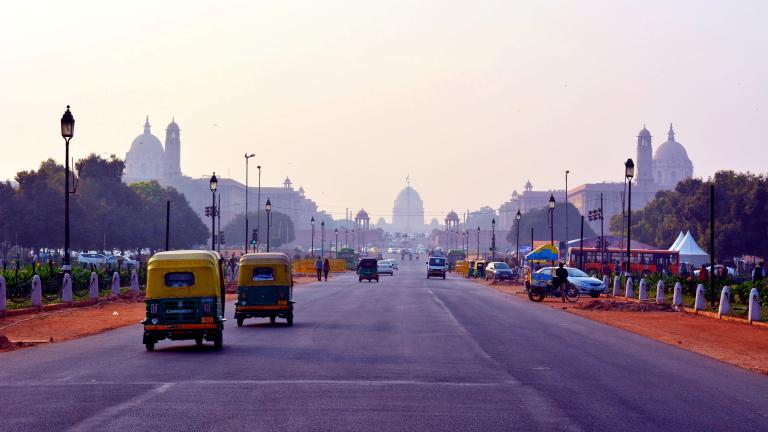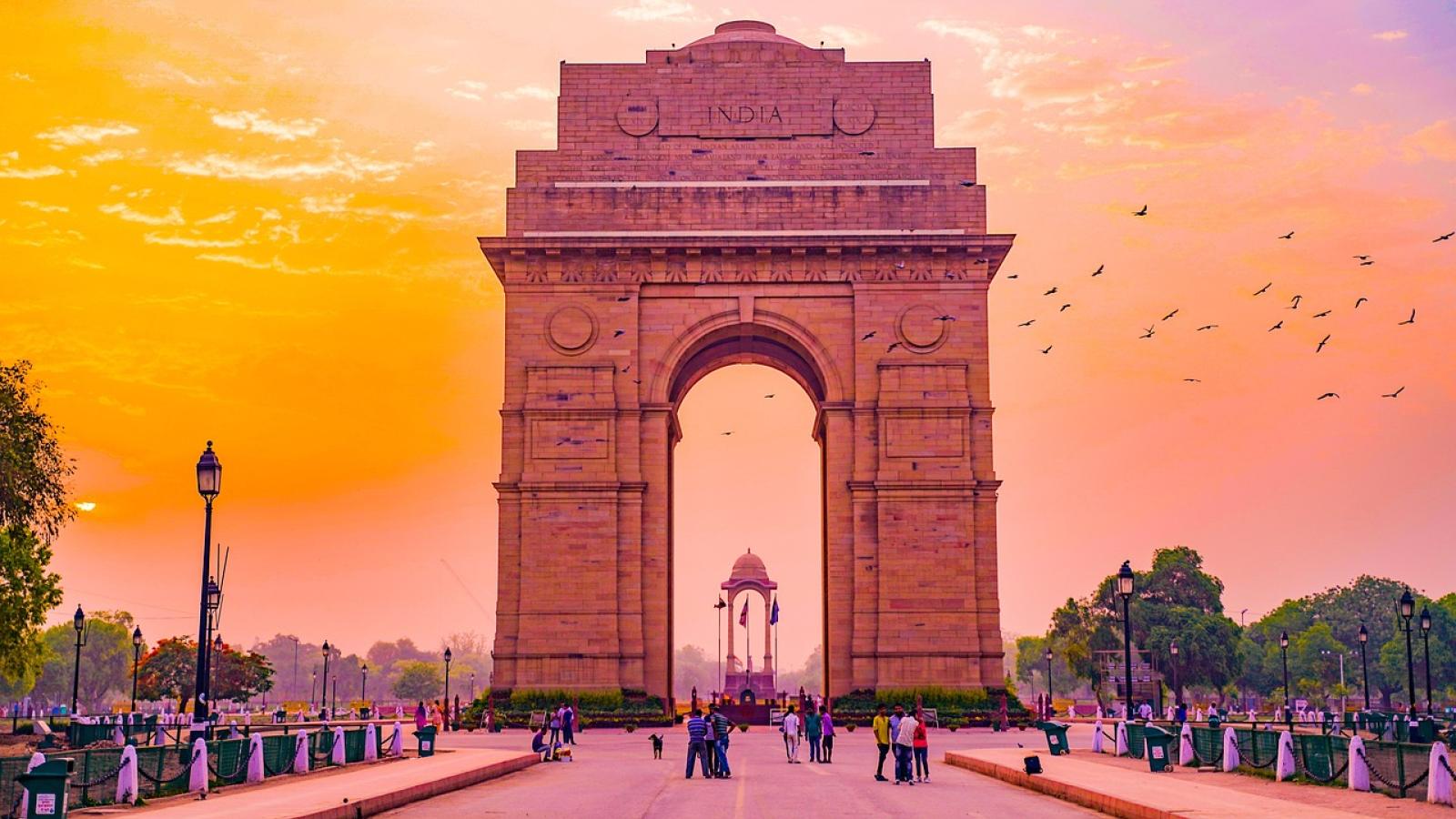Analysis
Toward Sustainable Cities: Transit-Oriented Growth and Green Bonds in India's Urban Transformation
The UrbanShift India National-Local Dialogue, led by ICLEI South Asia, explored how sustainable infrastructure, Transit-Oriented Development, and innovative financing can shape resilient urban growth in India's rapidly expanding cities.
By Karishma Asarpota and Saheel Ahmed (ICLEI - Local Governments for Sustainability)
As India’s cities grow at an unprecedented rate, urban planners and policymakers face immense challenges such as environmental degradation, inadequate infrastructure, and fragmented governance. The UrbanShift India National-Local Dialogue, initiated by ICLEI South Asia, provided a fresh perspective on how sustainable and smart infrastructure can pave the way for resilient urban development. Held on May 3, 2023, in New Delhi, the event brought together 144 participants, including national and local leaders, city officials, urban planners, and global organizations, creating a platform for collaborative solutions to tackle the future challenges of urbanization in India.
Financing People-Centric Cities: How Transit-Oriented Development (ToD) and Green Bonds Can Shape India's Urban Future
A key theme of the UrbanShift dialogue was the advocacy for Transit-Oriented Development (ToD), which emphasizes pedestrian-friendly infrastructure and public transportation over cars. Pune and Surat were highlighted as models for addressing urban mobility challenges. In Pune, initiatives to expand the metro network and enhance last-mile connectivity with walkable streets and cycling paths illustrate how ToD can improve accessibility and quality of life.
However, a looming $6 trillion investment gap over the next 50 years poses a significant threat to these efforts. Currently, urban investment is only 1% of GDP, with just 3% from the private sector. The dialogue identified green bonds as a promising solution; cities like Ghaziabad and Indore have successfully issued them to fund projects like sewage treatment and solar energy. These bonds not only provide essential financial support but also encourage sustainable practices. Increasing private sector involvement and leveraging financial tools like municipal bonds are seen as vital for advancing sustainable urban development in India’s cities.
Building a Sustainable Roadmap: The Urban Sustainability Assessment Framework
A key outcome of the dialogue was the introduction of the Urban Sustainability Assessment Framework by Ms Mansi Sachdeva, a senior Urban Planner. This comprehensive tool guides Indian cities in achieving sustainable development through a step-by-step process, including GHG profiling and climate action strategies. By integrating nature-based solutions, aligns with India's global climate commitments and promotes resilient urban environments.
Successful projects under UrbanShift, such as Chennai’s flood risk management and Surat’s coastal protection, exemplify this framework's effectiveness. Chennai is restoring lakes and implementing blue-green infrastructure, while Surat is enhancing its coastline through seawall construction and ecosystem restoration.
The dialogue also stressed the need for multilevel governance to align national policies with local priorities. Collaboration among government, private sector, and communities is crucial for advancing impactful projects, helping cities meet sustainability targets and fostering inclusive urban growth.
Challenges Ahead
The discussion underscored major challenges to achieving a sustainable urban future in India, including:
- Investment gap: Insufficient funding hampers cities from reaching their infrastructure and environmental objectives.
- Fragmented governance: Ineffective coordination between national, state, and local governments hinders both decision-making and implementation.
- Lack of scalable pilot projects: There is a shortage of pilot projects that can be expanded or replicated across other cities.
- Limited private sector participation: The private sector's engagement in urban development remains minimal.
Despite these significant challenges, cities like Pune and Chennai provide successful models that can serve as examples for fostering resilience and sustainability elsewhere.
Next Steps: Collaboration and Capacity Building
The dialogue concluded with a clear message: collaboration is key. Cities, national governments, the private sector, and international organizations must work together to build capacity and implement innovative solutions. A roadmap for multilevel governance was launched to ensure Indian cities continue progressing with technical assistance, peer-to-peer learning, and stronger coordination. The 1st NLD meeting helped push forward a Transit-Oriented Development (ToD) plan in Pune, which has now been awarded and is halfway through completion. The Ministry of Housing and Urban Affairs (MoHUA) has also committed to hosting future dialogues, ensuring ongoing collaboration between national and local stakeholders. The next NLD in India is planned for 2025, further solidifying the commitment to ongoing discussions on ToD and multilevel governance.
UrbanShift supports cities around the world to adopt integrated approaches to urban development, building an equitable, zero-carbon future where both people and the planet can thrive. Click here to read the summary of India’s First National-Local Dialogue as part of the UrbanShift program. To learn more about the Urban Shift’s project in India click here.
If you have any questions or contributions that could support the planning of the next National-Local Dialogue in India, as part of the UrbanShift program, please reach out to urbanshift@iclei.org.

India 2nd National-Local Dialogue
The dialogue will focus on ‘Transitioning towards Innovative Cities’ and 'Transit-Oriented-Development'.

How Chennai is restoring Kadapakkam Lake with nature-based solutions
An UrbanShift spotlight on integrated water management, climate adaptation, and local innovation

Second National-Local Dialogue for Morocco: From Vision to Local Action, Advancing the Circular Economy
Building on the first National-Local Dialogue, this convening offered an opportunity to deepen discussions around localizing circular economy principles across the country.

What's Next for the UrbanShift Network?
As the UrbanShift Global Platform concludes, the next phase of the GEF Sustainable Cities Impact Program will build on the momentum and progress for sustainable and resilient cities.

